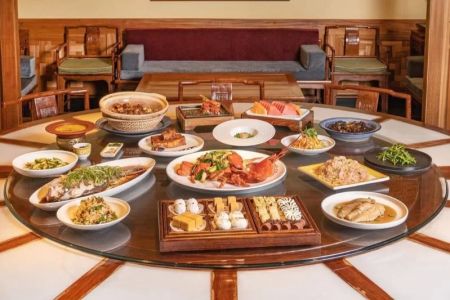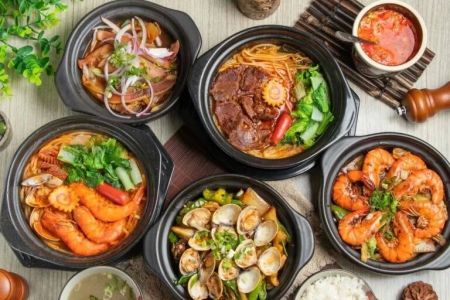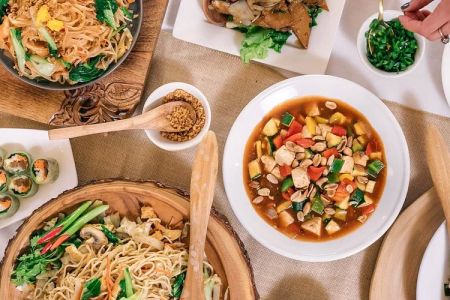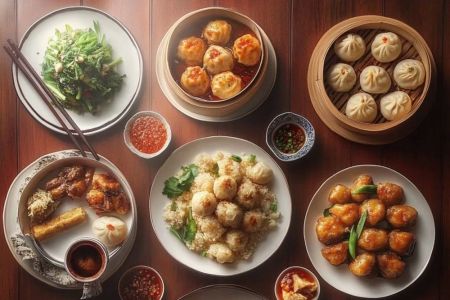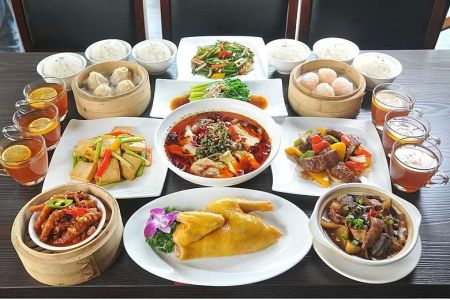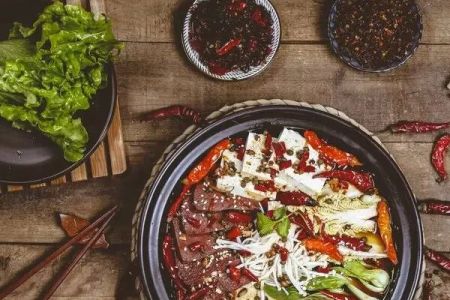Chinese Dining Guide: Exploring Authentic Flavors and Dining Etiquette
- Introduction to Chinese Cuisine
- Regional Cuisines of China
- Essential Dishes in Chinese Dining
- Chinese Dining Etiquette: What You Need to Know
- Where to Enjoy Authentic Chinese Food
1. Introduction to Chinese Cuisine
Chinese cuisine is one of the world’s most diverse and rich culinary traditions, known for its depth of flavor, variety of ingredients, and intricate preparation methods. Whether you’re a seasoned diner or new to the world of Chinese food, a Chinese dining guide will help you explore the range of dishes and dining experiences that Chinese cuisine offers.
The history of Chinese food spans thousands of years, drawing influence from various regions, cultures, and dynasties. This diversity is reflected in the vast range of flavors—from the bold, spicy dishes of Sichuan to the delicate, sweet notes of Cantonese cooking. Understanding the different types of Chinese cuisine and their unique features can significantly enhance your dining experience.
2. Regional Cuisines of China
China’s culinary landscape is defined by its regional diversity, with eight main culinary traditions, each offering distinct flavors and cooking techniques. Some of the most notable regional cuisines include:
- Shandong Cuisine: Known for its emphasis on fresh ingredients, seafood, and savory broths, Shandong cuisine highlights simple yet flavorful dishes.
- Sichuan Cuisine: Famous for its bold use of chili peppers, garlic, and Sichuan peppercorns, Sichuan cuisine is known for its spicy, numbing flavors.
- Cantonese Cuisine: Cantonese food is renowned for its use of fresh, high-quality ingredients, with a focus on steaming and stir-frying. Dim sum is a signature of Cantonese cuisine.
- Shanghainese Cuisine: Characterized by the use of sweet and savory flavors, Shanghai cuisine includes dishes like braised pork and fresh seafood.
These are just a few examples of the regional diversity in Chinese cuisine. Each region’s unique cooking style and ingredients offer a wide variety of dining experiences that are worth exploring.
3. Essential Dishes in Chinese Dining
When dining in Chinese restaurants or exploring Chinese recipes, certain dishes are considered essential. These dishes reflect the fundamental flavors and techniques of Chinese cuisine. Some must-try dishes include:
- Peking Duck: A world-famous dish, Peking duck is known for its crispy skin and tender meat, served with thin pancakes, hoisin sauce, and vegetables.
- Dim Sum: A Cantonese tradition, dim sum consists of small, bite-sized portions, often served in steamer baskets. Dumplings, buns, and spring rolls are common choices.
- Hot Pot: A communal meal where diners cook their own ingredients (meat, vegetables, tofu) in a simmering pot of broth, perfect for sharing with friends and family.
- Mapo Tofu: A popular Sichuan dish made with tofu, ground pork, and a spicy, savory sauce, often flavored with Sichuan peppercorns.
These dishes represent some of the most iconic flavors in Chinese dining. Exploring them will provide you with a solid foundation for understanding the cuisine and its diversity.
4. Chinese Dining Etiquette: What You Need to Know
In addition to understanding the flavors and dishes of Chinese cuisine, it’s important to be aware of dining etiquette. Chinese dining culture has its own set of customs that can make your dining experience more respectful and enjoyable. Here are some key points to consider:
- Serving Tea: It’s customary to serve tea as a gesture of hospitality. When pouring tea for others, it’s polite to refill their cups before your own.
- Chopstick Etiquette: Don’t stick chopsticks upright into your rice, as this resembles a funeral ritual. When not in use, place them on the chopstick rest or across your plate.
- Sharing Dishes: Chinese meals are typically served family-style, meaning dishes are shared among all diners. Be sure to take small portions and avoid finishing a dish entirely unless it’s for your group.
Being mindful of these etiquette practices will not only improve your dining experience but also show respect for the cultural traditions associated with Chinese dining.
5. Where to Enjoy Authentic Chinese Food
If you’re looking for authentic Chinese dining experiences, finding a restaurant that serves regional specialties and uses high-quality ingredients is essential. Many cities, including Miami, boast a wide range of restaurants that bring the flavors of China to your table. From high-end restaurants serving Peking duck to local dim sum eateries, there’s no shortage of options for exploring Chinese cuisine.
If you’re looking for a place to begin your culinary adventure, consider visiting Chinese Food, where you can discover a variety of authentic Chinese dishes and gain insight into the best dining experiences available. Whether you’re a local or a visitor, it’s important to support restaurants that respect the integrity of Chinese culinary traditions.
By exploring authentic Chinese dining, you’ll be able to deepen your understanding of the cuisine and immerse yourself in its rich flavors and culture.


